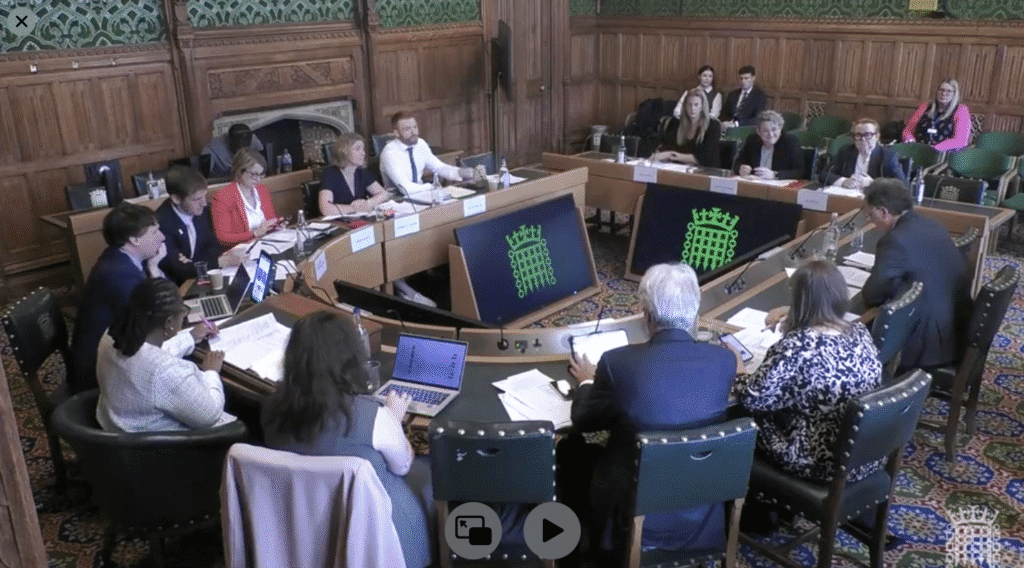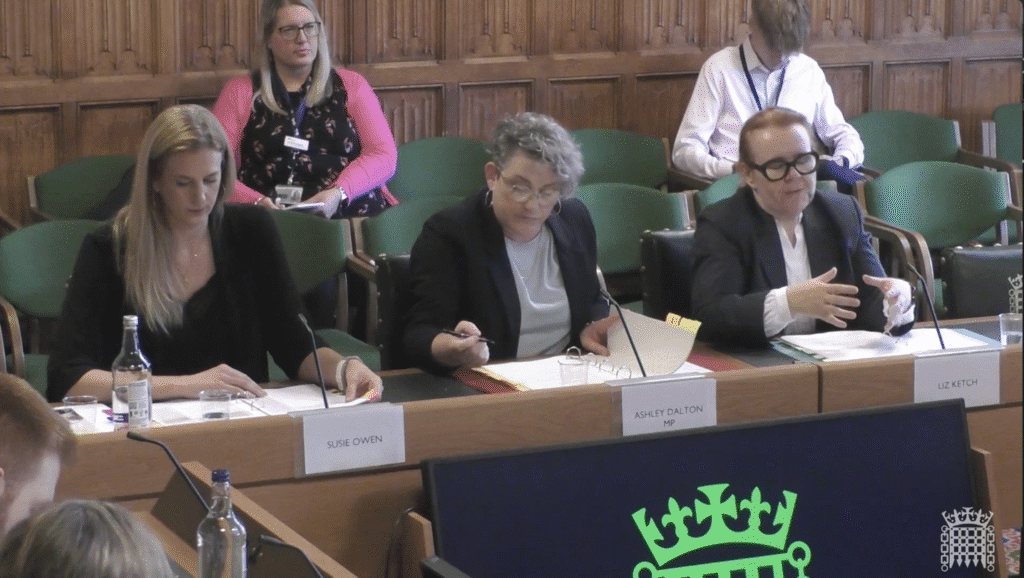This morning [September 3], Parliamentary Under Secretary of State for Public Health and Prevention gave evidence to the House of Commons Health and Social Care Committee for the Committee’s inquiry into early years and the first 1000 days of life. Accompanying her, and also taking questions from MPs, were Liz Ketch – Director for Early Years, Children & Families at the Department of Health and Social Care – and Susie Owen – Co-Director for Early Years, Childcare, Families and Analysis at Department of Education.
Family hubs: From pilot to national programme
Describing the Government’s Best Start for Life programme as “the start of a decade of renewal,” Dalton said the model draws on lessons from Sure Start and aims to put early years support “on a permanent, long-term footing.”
Dalton defended the decision to focus performance measures on the 0–2 age range, stating: “Because of the name Start for Life, the focus is on the first 1,001 days.”
However she stressed: “I don’t think that the 1,001 days should be viewed in isolation … That’s the start of life, not the end of support.”
MPs pressed Dalton on whether existing health visitor capacity could meet the programme’s expectations. She acknowledged the pressures in the system, saying: “We are investing in the health visiting workforce and supporting them with professional development, but we know that there’s work to do in this area.”
SEND and early identification: A recurring accountability gap
A key theme throughout the session was the unequal accountability between health services and local authorities in supporting children with special educational needs and disabilities (SEND).
When asked whether the Department of Health and Social Care acknowledged this gap, Dalton admitted: “That is one of the challenges, and one of the things that I’ve committed to doing is going away and looking at what is happening and what more we can do.”
She pointed to new family hub roles intended to improve identification and navigation for families: “Every family hub has a SEND lead, and that person will help families navigate the system and support early identification.”
Still, she noted systemic barriers remain, particularly where diagnostic services were siloed: “We heard of a case where a child was waiting two years for a speech and language therapy appointment.” Dalton agreed to take the issue away and “raise it with colleagues in the Department for Health and Social Care.”
Data sharing and safeguarding: The single identifier debate

The Committee also grilled Dalton on the government’s data linkage pilots, particularly the use of a single identifier — typically the NHS number — to improve safeguarding and service coordination.
Dalton acknowledged: “There are some challenges that we’re working through, particularly for things like adopted children or unaccompanied asylum seekers, where their NHS number may change or there may not be one allocated.”
She added: “We are working very closely with the Information Commissioner’s Office to ensure that we are on the right side of GDPR.”
Pressed further, Dalton conceded: “There is a lack of confidence, and that’s what we’re trying to fix.”
Mental health pressures: Ambition vs. delivery
One of the sharpest exchanges came on the topic of maternal mental health services, as MPs highlighted evidence that two-thirds of ICBs have made real-terms cuts to perinatal support.
Dalton reaffirmed the government’s intent to expand services, but did not dispute the figures, saying: “The funding is there. It’s then for ICBs to commission services.”
Committee members raised concerns about consistency and equity of access. Dalton responded: “That’s exactly the sort of thing that we are trying to tackle with the Start for Life offer.”
She also pointed to the new independent national investigation into maternity and neonatal services, stating: “We expect that to report back with recommendations later this year.”
Early years: A decade of ambition – and challenge
Throughout the session, Dalton struck a tone of realism and commitment, describing the programme as “ambitious, but based on evidence.”
But the Committee remained sceptical that current delivery structures — particularly NHS capacity and integration — are robust enough to meet expectations.
“The aspiration is really high,” Dalton admitted, “and we know we’re not there yet.”
Featured image via Parliament Live

